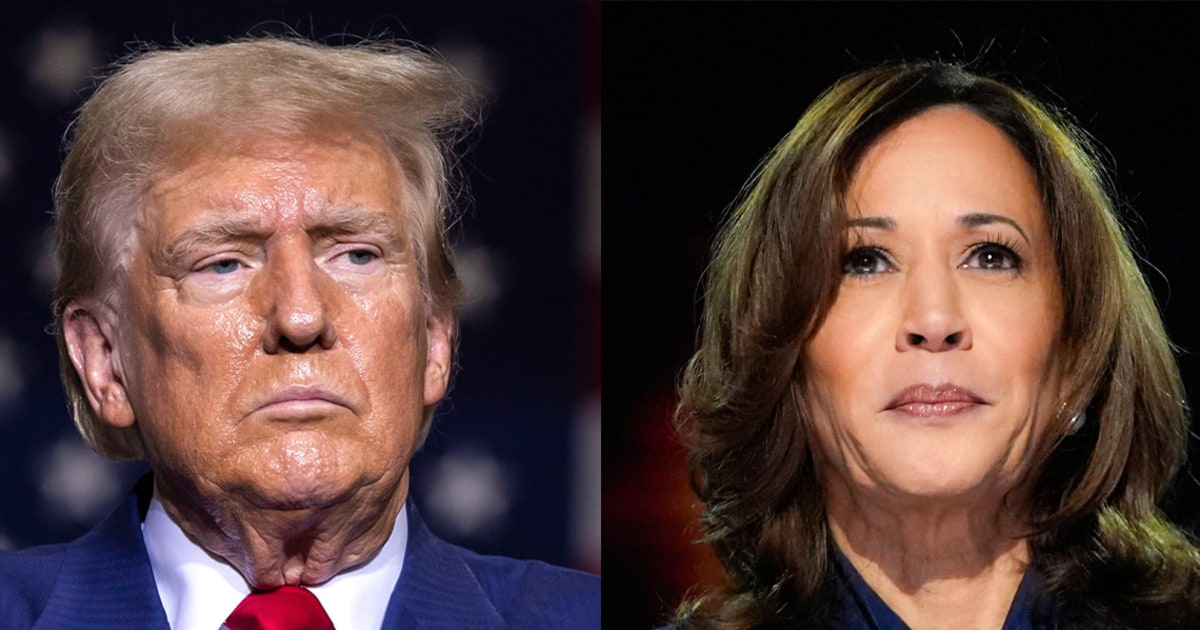Voters are far less likely to back candidates who say former President Donald Trump won the 2020 election or who support the Supreme Court’s decision overturning Roe v. Wade, and they are more likely to support a candidate who they feel is working to address high costs, according to the latest national NBC News poll.
With voters citing the economy and inflation, abortion, immigration and democracy as top issues in this election, the survey tested a series of policy proposals on those topics, offering clues about which policies could move voters. The survey did not identify which party or candidate is associated with the proposal.
The poll shows that voters across the political spectrum are more likely to vote for a candidate seeking to address high costs, with some of those policies among the most popular of the dozen tested.
Roughly 2 in 3 voters say they are more likely to back a candidate “who supports expanding domestic oil and natural gas production to lower gas and energy prices,” as well as a candidate who supports a $6,000 federal child tax credit. And 61% say they are more likely to back a candidate “who wants to help control inflation by taxing large corporations that are making record profits.”
“That speaks to the importance of the economy and the cost of living especially at this time, and people being open to potential solutions to drive down the cost of living,” said Democratic pollster Aileen Cardona-Arroyo of Hart Research Associates, which conducted the survey with Public Opinion Strategies, a Republican polling firm.
One economic proposal — “tariffs as high as 20% on goods from all countries” — was not as popular, with 44% saying they are less likely to vote for a candidate who supports that policy, and 35% saying they are more likely to support that candidate.
While economic policies could move voters toward a candidate, the survey also finds that election denialism could turn them off.
A majority of voters surveyed — 52% — say they are less likely to support a candidate who says Trump won the 2020 presidential election, making it the least popular position tested in the survey.
Voters across swing groups, including suburban women, independents, moderates and seniors, say they are less likely to support a candidate who denies the election results. The position only has a positive effect on Trump’s voter base, including self-described MAGA Republicans and conservatives.
Trump is still locked in an extremely close race with Vice President Kamala Harris in the NBC News poll, with both candidates receiving support from 48% of voters. That comes as voters are judging the candidates on a range of issues, with Trump earning higher marks than Harris on handling the cost of living and immigration, while Harris has a sizable advantage on abortion, and edges on competency and representing change.
On immigration, voters gravitate toward two immigration policies tested in the survey, with 62% saying they are more likely to vote for a candidate “who supports deploying the military to the border to stop illegal drugs and human trafficking.”
And half of voters surveyed say they are more likely to back a candidate “who supports increasing deportations of undocumented immigrants” (although the question did not specify which or how many undocumented immigrants would be deported).
On abortion, a majority of voters say they are more likely to support a candidate who advocates for “a federal law restoring a nationwide right to an abortion.” Meanwhile, support for the Supreme Court’s decision overturning Roe v. Wade was largely unpopular, with 52% saying they are less likely to support a candidate who supports that decision.
Voters were split on a candidate who says the abortion issue should be left to each state, with 42% saying they would be more likely to support a candidate with that position, and 42% saying they would be less likely to support that candidate.
The NBC News poll of 1,000 registered voters, 898 of whom were reached by cellphone, was conducted Oct. 4-8. It has an overall margin of error of plus or minus 3.1 percentage points.

Leave a Reply